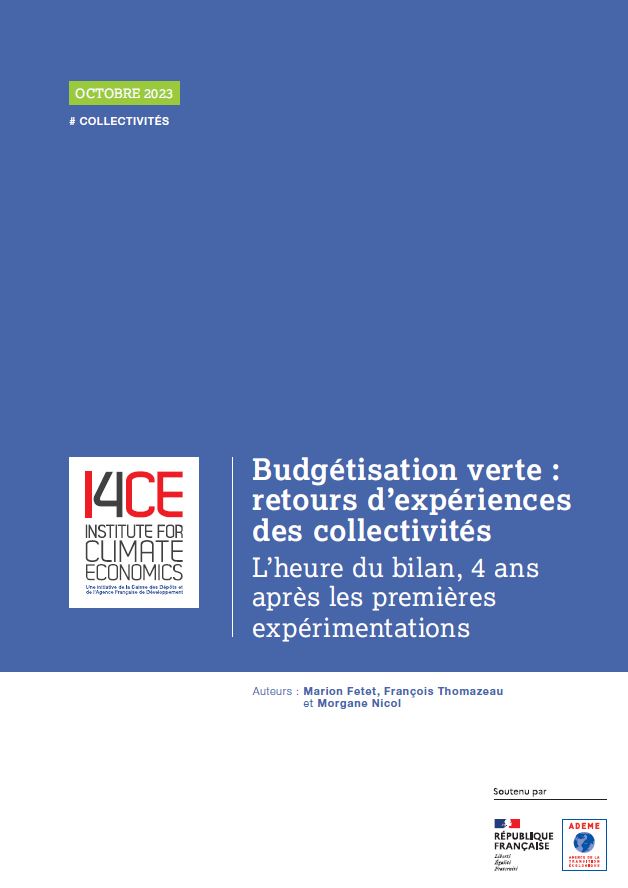Green Budgeting: feedback from local authorities
Time to take stock, 4 years after the first experiments
Report only available in French
A momentum for green budgeting is gaining ground within local authorities: In the space of four years, around a hundred of them have embarked on the green budgeting process or have plans to do so. This includes nearly all the Regional Councils in metropolitan France and a third of municipalities or intermunicipal entities with over 100,000 inhabitants. While the primary goal of green budgeting is to enhance the budgetary process so that decisions can be made in favour of reallocating local authority expenditures towards environmentally friendly initiatives, how does it play out in practice? This study assesses the usefulness of green budgeting based on feedback from local authorities, particularly those that have undergone the process in the last 4 years.
Based on the input received by local authorities through questionnaires or semi-structured interviews, the main contribution of green budgeting is to institutionalize and systematize opportunities for discussions on environmental issues during budget deliberations. As a result, a green budgeting exercise should be seen more as an internal strategic management tool or a managerial approach with the aim of ensuring that environmental issues are taken on board by all departments, at the departmental level and by elected representatives, rather than as a strict budgeting or a reporting tool. Green budgeting also brings other benefits, such as enhancing transparency regarding the local authority’s financial and environmental efforts.
Today, the integration of green budgeting outcomes into budget planning and decision-making, which involves reallocating expenditures that can be redirected, remains limited. Interviews with local authorities revealed only few cases where “unfavourable” expenditures had been questioned because of this criterion. Conversely, the same holds true for “favourable” expenditures that had been prioritized because of the process. The still recent and imperfect implementation of this tool in the majority of local authorities interviewed probably explains its under-use as a decision-making instrument thus far. However, those interviewed consider that the green budgeting tool could help in such decision-making, provided that there is a political will and that the results are available early enough in the budgetary process. The use of these results should be monitored in the coming years, particularly when the new mandate projects are being drawn up, which is a key time for defining local authority’s projects, particularly concerning investments.
According to the local authorities interviewed in this study, ten key success factors can help establish green budgeting results as a decision-making criterion:
#1 Having high-level political and administrative support (executive and general management);
#2 Allocating sufficient human resources and planning to allocate staff time to the process;
#3 Clearly explaining the objectives and limitations of the green budgeting tool to elected officials and departmental units;
#4 Involving all departments and elected representatives from the very beginning of the process;
#5 Establishing a collaborative partnership between the ecological transition and finance departments, ideally with the support of the respective elected representatives;
#6 Conducting green budgeting prior to making trade-offs to deliberate over green budgeting results when making decisions, and integrating green budgeting throughout all stages of the budget’s lifecycle, from forecasting to execution and evaluation;
#7 Implementing green budgeting when drawing up future mandate projects;
#8 Ensuring the use of the tool over several years;
#9 Maintaining transparency about the methodology used, which must be robust and objective;
#10 Maximizing the involvement of external partners and combining green budgeting with other existing tools to facilitate the collection of necessary information for its implementation.


